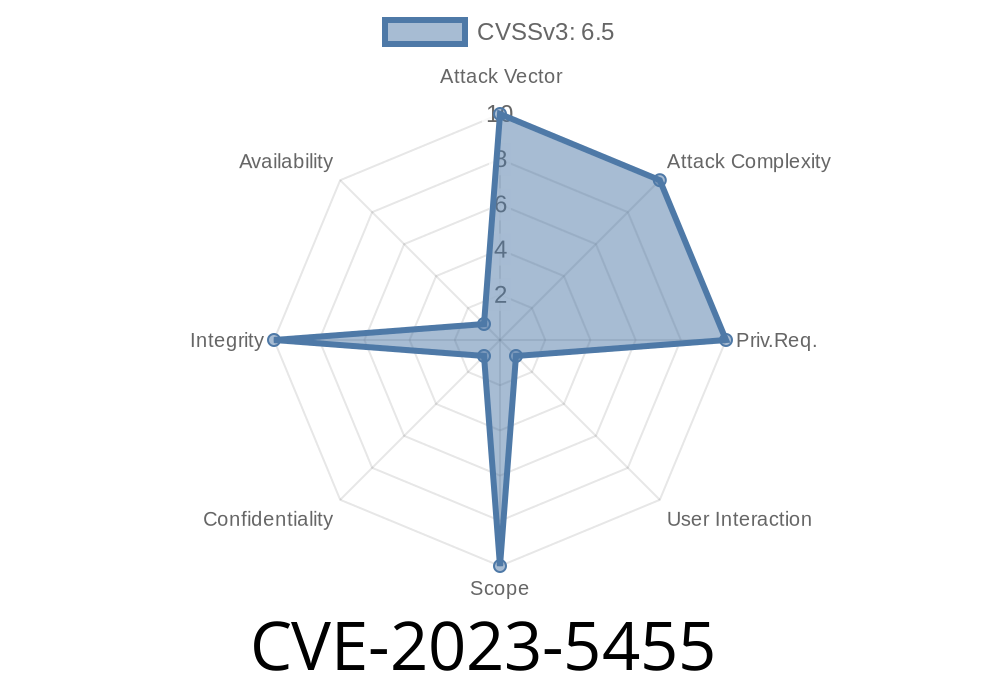In September 2023, security researchers uncovered a Cross-site Request Forgery (CSRF) flaw, designated CVE-2023-5455, affecting all supported versions of FreeIPA. This bug was found in the authentication endpoint ipa/session/login_password, potentially allowing attackers to manipulate unsuspecting users into sending requests on their behalf. Let’s walk through what happened, how it works, and what you need to know if your environment uses FreeIPA.
What is FreeIPA?
FreeIPA is an open-source identity management solution for Linux/UNIX environments, providing centralized authentication, access control, and audit logging. Many organizations use it to keep their infrastructure secure and easier to manage.
Quick Overview: What is CSRF?
A Cross-site Request Forgery (CSRF) attack tricks a logged-in user’s browser into submitting unauthorized requests to a web application they’re already authenticated with. Imagine you’re logged in to your company portal; if an attacker gets you to visit a malicious site, your browser could silently send requests to the portal, performing actions as if you did them.
The Vulnerability Details
During a penetration testing session, the community noticed that while FreeIPA provided CSRF protection on several endpoints, the ipa/session/login_password route was not among them. This endpoint is responsible for handling user password logins.
What went wrong: No CSRF token or verification was required.
- Risk: An attacker crafts a malicious webpage that submits a POST request to ipa/session/login_password, potentially logging in with credentials of their choosing.
Important Limitation: Due to FreeIPA’s handling of cookies, an attacker cannot hijack the session of a user who is already logged in. Each exploit attempt requires a fresh authentication—that is, the attacker would need to know or guess login credentials and prompt the user to submit them.
Attacker Mallory sends Alice a phishing email with a hidden form.
3. Alice clicks the link while logged out. The form automatically sends a POST request to ipa/session/login_password with credentials set by Mallory.
4. If Alice’s browser shares credentials (e.g., due to password autofill or if Alice enters them on the attacker’s landing page), this could cause unwanted login attempts. However, unless the attacker gets Alice to enter her password, there’s less risk.
Here is an example HTML page an attacker might use to try to exploit this flaw
<!DOCTYPE html>
<html>
<body>
<form action="https://freeipa-server.example.com/ipa/session/login_password"; method="POST" id="csrfForm">
<input type="hidden" name="user" value="victim_username">
<input type="hidden" name="password" value="guess_or_phished_password">
</form>
<script>
document.getElementById('csrfForm').submit();
</script>
</body>
</html>
If Alice (the victim) visits this page, her browser tries to POST the form to FreeIPA, potentially logging in as the attacker wants—*if* Alice’s browser happens to send the cookies or credentials.
Critical Limitation
- This will not work if Alice is already logged in, or unless the attacker manages to trick her into entering her credentials on the attacker's phishing page.
- FreeIPA requires a new authentication for every new session (there’s no active cookie the attacker can "ride").
Authenticating requires actual credentials.
However, the lack of CSRF tokens on this endpoint is still a vulnerability according to industry standards, because an attacker can attempt login actions in the user’s browser.
Recommendations
- Update FreeIPA: Fixes or mitigation should be released by the FreeIPA maintainers. Always update to the latest stable version. See advisories and FreeIPA changelogs.
- Disable password autocomplete: Educate users and configure browsers to prevent automatic password filling on suspicious/fake sites.
- User Training: Remind users not to click on unexpected links, and to check the URL before entering credentials.
References
- Red Hat CVE-2023-5455 Security Advisory
- FreeIPA Security Announcements
- OWASP: Cross-Site Request Forgery (CSRF)
- FreeIPA Upstream Issue Discussion
Conclusion
CVE-2023-5455 highlights the importance of end-to-end CSRF protection—especially in authentication systems. While this bug does not let attackers hijack existing sessions or immediately escalate privileges without stolen credentials, it can be chained with other phishing or social engineering tactics. If you run FreeIPA, keep systems patched and raise user awareness. The right technical and human defenses help keep your identity services secure.
Timeline
Published on: 01/10/2024 13:15:48 UTC
Last modified on: 02/20/2024 19:05:40 UTC
